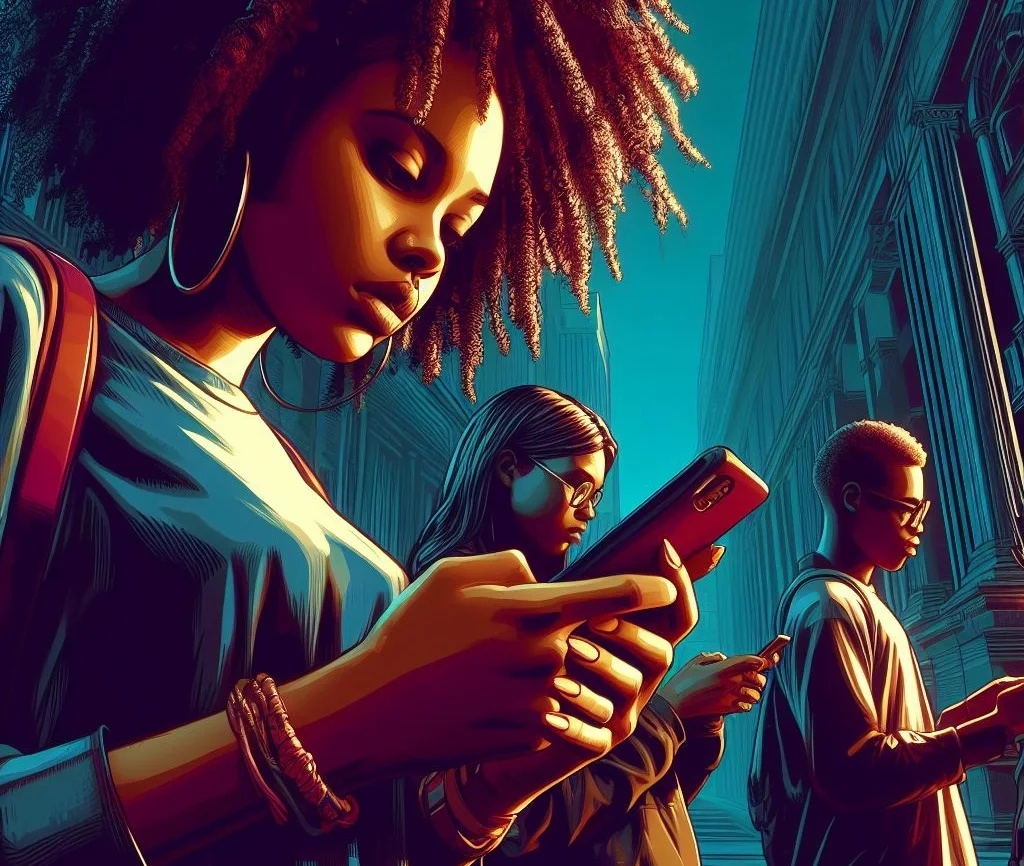Short video apps like YouTube and TikTok have swept through college campuses, offering a mix of fun and connection. But there's a catch: overindulging in these digital delights might lead to a habit hard to break, zapping productivity and skewing time management, according to a news research.
The study dug into why these bite-sized videos are so addictive. Researchers leaned on two key ideas: one that maps out how we interact digitally and the reasons behind it, and another that delves into our reasons for media consumption, suggesting we turn to our screens for specific personal gains.
Curious about what fuels this app obsession, scientists studied the behaviors of 197 college students from both China and the U.S. via online surveys. They found that while Chinese students' quest for fun didn't really interfere with making friends on the apps, American students' hunt for entertainment led them to be less social.
This might be because American culture often celebrates personal thrills and outgoing characters, pushing students there to prioritize watching over interacting. Another significant find was the concept of 'compensatory expectation,' where students dive into the virtual world of videos to compensate for what they're missing in real life, nudging them towards app dependency.
It turns out the slide from casual viewer to video junkie doesn't really care about how good you are at resisting temptation; it happened to students across the board, regardless of their willpower.
But when it came to other app habits, the cultural divide showed up again. Chinese students who could easily say 'no' to distractions ended up using apps more for social reasons. Meanwhile, their American counterparts with the same level of self-restraint tended to use the apps more as a digital band-aid for real-world letdowns.
Despite its reliance on what students said about themselves, which might not always be spot-on, the study shines a light on the dynamics of short video app use among young adults.
Researchers suggest tackling the issue by embracing the great outdoors, swapping videos for text, and boosting self-control. They caution that once signs of app addiction appear, it's crucial to take swift action to curb a downward spiral into constant use.
This investigation, led by Ning Zhang, Bidyut Hazarika, Kuanchin Chen, and Yinan Shi, is titled "A cross-national study on the excessive use of short-video applications among college students," and it opens a window into the intricate web of factors that could turn a leisurely scroll into a compulsive swipe.
Read next: AI vs. Human Writing: Can You Spot the Bot in Your Daily Read?
The study dug into why these bite-sized videos are so addictive. Researchers leaned on two key ideas: one that maps out how we interact digitally and the reasons behind it, and another that delves into our reasons for media consumption, suggesting we turn to our screens for specific personal gains.
Curious about what fuels this app obsession, scientists studied the behaviors of 197 college students from both China and the U.S. via online surveys. They found that while Chinese students' quest for fun didn't really interfere with making friends on the apps, American students' hunt for entertainment led them to be less social.
This might be because American culture often celebrates personal thrills and outgoing characters, pushing students there to prioritize watching over interacting. Another significant find was the concept of 'compensatory expectation,' where students dive into the virtual world of videos to compensate for what they're missing in real life, nudging them towards app dependency.
It turns out the slide from casual viewer to video junkie doesn't really care about how good you are at resisting temptation; it happened to students across the board, regardless of their willpower.
But when it came to other app habits, the cultural divide showed up again. Chinese students who could easily say 'no' to distractions ended up using apps more for social reasons. Meanwhile, their American counterparts with the same level of self-restraint tended to use the apps more as a digital band-aid for real-world letdowns.
Despite its reliance on what students said about themselves, which might not always be spot-on, the study shines a light on the dynamics of short video app use among young adults.
Researchers suggest tackling the issue by embracing the great outdoors, swapping videos for text, and boosting self-control. They caution that once signs of app addiction appear, it's crucial to take swift action to curb a downward spiral into constant use.
This investigation, led by Ning Zhang, Bidyut Hazarika, Kuanchin Chen, and Yinan Shi, is titled "A cross-national study on the excessive use of short-video applications among college students," and it opens a window into the intricate web of factors that could turn a leisurely scroll into a compulsive swipe.
Read next: AI vs. Human Writing: Can You Spot the Bot in Your Daily Read?

